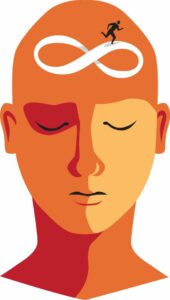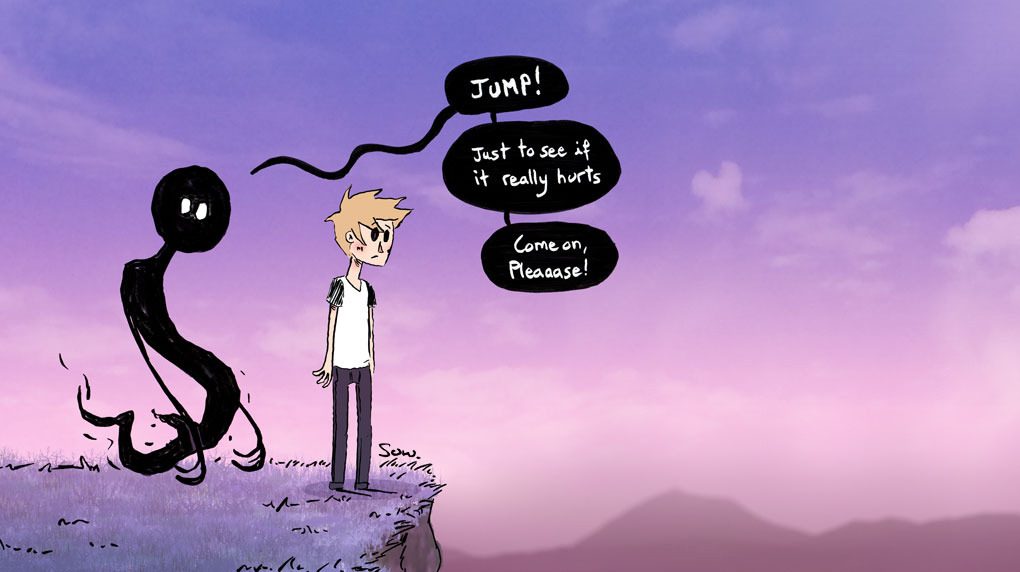Have you ever had a thought that made you feel scared, ashamed, or confused? You might think it’s not normal, but in fact, these are known as violent intrusive thoughts and they are extremely common. Unfortunately, because of the stigma attached to them, many people don’t seek help and instead try to cope with them on their own. In this article, we will discuss what violent intrusive thoughts are, how they can affect your life, and what you can do to manage them healthily. We will explore coping strategies as well as professional treatments available if you feel like you need more support.
Contents
What Are Violent Intrusive Thoughts?

Violent intrusive thoughts are recurrent, unwanted thoughts or images that are disturbing and cause significant distress. They can include thoughts about harming oneself or others, often involving weapons such as knives or guns.
These types of thoughts are often associated with anxiety, depression, and post-traumatic stress disorder (PTSD). People who experience violent intrusive thoughts may worry that they will act on these impulses, which can lead to further anxiety and distress. However, it is important to remember that such thoughts are common and do not necessarily reflect a person’s true desires or intentions.
Experiencing violent intrusive thoughts can cause significant distress and fear. People may worry that they will act on these thoughts, even though this is highly unlikely. The guilt and shame associated with such thoughts can be overwhelming and people may feel isolated or ashamed, making it difficult to seek help. In addition to emotional difficulties, people with violent intrusive thoughts may also experience physical symptoms such as nausea, sweating, and shaking.
Why Do People Have Violent Intrusive Thoughts?
There’s no one answer to this question as it can vary from person to person. However, there are some possible explanations for why someone might experience violent intrusive thoughts.
For example, it could be a sign of unresolved anger or trauma, or it could be a symptom of an underlying mental health condition like OCD or PTSD. It’s also worth noting that sometimes people have violent thoughts simply because they’re exposed to a lot of violence in their environment (e.g., through media or real-life experiences).
Some of the other reasons why people might have violent intrusive thoughts include stress, anxiety, fear of failure, and perfectionism. People may also experience these types of thoughts because they are trying to make sense of the world around them or process a difficult situation. Additionally, some people use violence as an outlet for their emotions.
Other reasons that may lead to violent intrusive thoughts can include a lack of coping skills, substance abuse, and even genetics. Additionally, people may be more likely to experience these types of thoughts if they have experienced trauma or abuse in the past.
What Are The Consequences of Having Violent Intrusive Thoughts?

Several consequences can occur as a result of having violent intrusive thoughts. These consequences can include:
Feeling anxious or stressed all the time: One of the most common signs of having violent intrusive thoughts is feeling anxious or stressed all the time. This can lead to other issues such as difficulty sleeping, and a lack of concentration.
Fear of acting on the thoughts: People who experience these types of thoughts may become fearful that they will act on them, even though no evidence suggests this. This fear can cause further anxiety and distress.
Negative self-image: People with violent intrusive thoughts may start to feel ashamed and embarrassed by their thoughts, which can lead to feelings of low self-esteem and worthlessness.
Relationship problems: Intrusive thoughts can disrupt relationships if not managed properly, leading to communication difficulties and mistrust between those involved.
Avoid certain situations or places because you’re afraid of what might happen: A person may start to avoid certain places or situations that make them feel anxious because of their intrusive thoughts, which can limit their life choices and activities significantly.
The constant fear of judgment: People who experience violent intrusive thoughts may fear that others will judge them for having these thoughts. This can lead to further feelings of isolation and loneliness. These feelings can be difficult to cope with and may cause further distress.
Although these consequences can feel overwhelming, it is important to remember that having violent intrusive thoughts does not mean that you are a danger to anyone or yourself.
How Can People Deal With Violent Intrusive Thoughts?

While violent intrusive thoughts are not pleasant, there are ways to deal with them.
- First, it is important to understand that having these thoughts does not make you a bad person. Just as everyone has different fears, everyone has different thoughts that can seem out of character.
- Second, try to distract yourself with another activity when you start to have a violent intrusive thought. This can be something as simple as taking a walk or calling a friend.
- Third, tell yourself that the thought is just a thought and not reality. It can be helpful to talk to someone you trust about your thoughts to help put them in perspective.
Some of the ways to cope with violent intrusive thoughts include:
Practicing Relaxation Techniques
One of the best ways to cope with intrusive thoughts is to practice relaxation techniques. This could include deep breathing, meditation, or yoga. Practicing these techniques can help you stay in the present moment and take your mind away from any negative thoughts that may be intruding on your peace.
Be Kind to Yourself
It is important to remember to be kind and patient with yourself when dealing with violent intrusive thoughts. Rather than focusing on trying to get rid of them, focus instead on accepting them as part of your experience and doing what you can to manage them. Take comfort in knowing that you are not alone; many people have experienced similar intrusive thoughts at some point in their lives.
Try Cognitive Behavioral Therapy
Cognitive Behavioral Therapy (CBT) is an effective form of therapy that can help you cope with intrusive thoughts. CBT focuses on identifying and challenging the negative thought patterns that may be causing your intrusive thoughts and replacing them with more positive beliefs. A trained mental health professional can also provide you with tools to help manage any anxiety or fear associated with these thoughts.
Reach Out for Support
It is important to reach out for support when dealing with intrusive thoughts. Talk to a friend, family member, or therapist about what you are going through. Knowing that someone understands and supports you can make a world of difference in how you cope with your intrusive thoughts.
Make Self-Care a Priority
Make sure to prioritize self-care when dealing with intrusive thoughts. This can be anything from taking a hot bath or reading a book to going for a walk in nature or listening to calming music. Taking care of yourself is not only important for managing your intrusive thoughts but also for overall mental health and well-being.
Research suggests that engaging in these activities can help manage intrusive thoughts over time and reduce their power over your life.
Conclusion
Violent intrusive thoughts can be extremely distressing and challenging for those who experience them. It is important to remember that these thoughts are not a reflection of the individual’s character or values but rather an involuntary response to feelings of stress, trauma, and anxiety. While you may feel helpless in managing them, there are plenty of strategies that can help reduce their frequency and intensity over time. If you find yourself struggling with violent intrusive thoughts, reach out to a mental health professional for guidance on how best to manage these difficult experiences.
For more information and guidance, please contact MantraCare. OCD is a mental health disorder characterized by obsessions and compulsions. If you have any queries regarding Online OCD Counseling experienced therapists at MantraCare can help: Book a trial OCD therapy session


